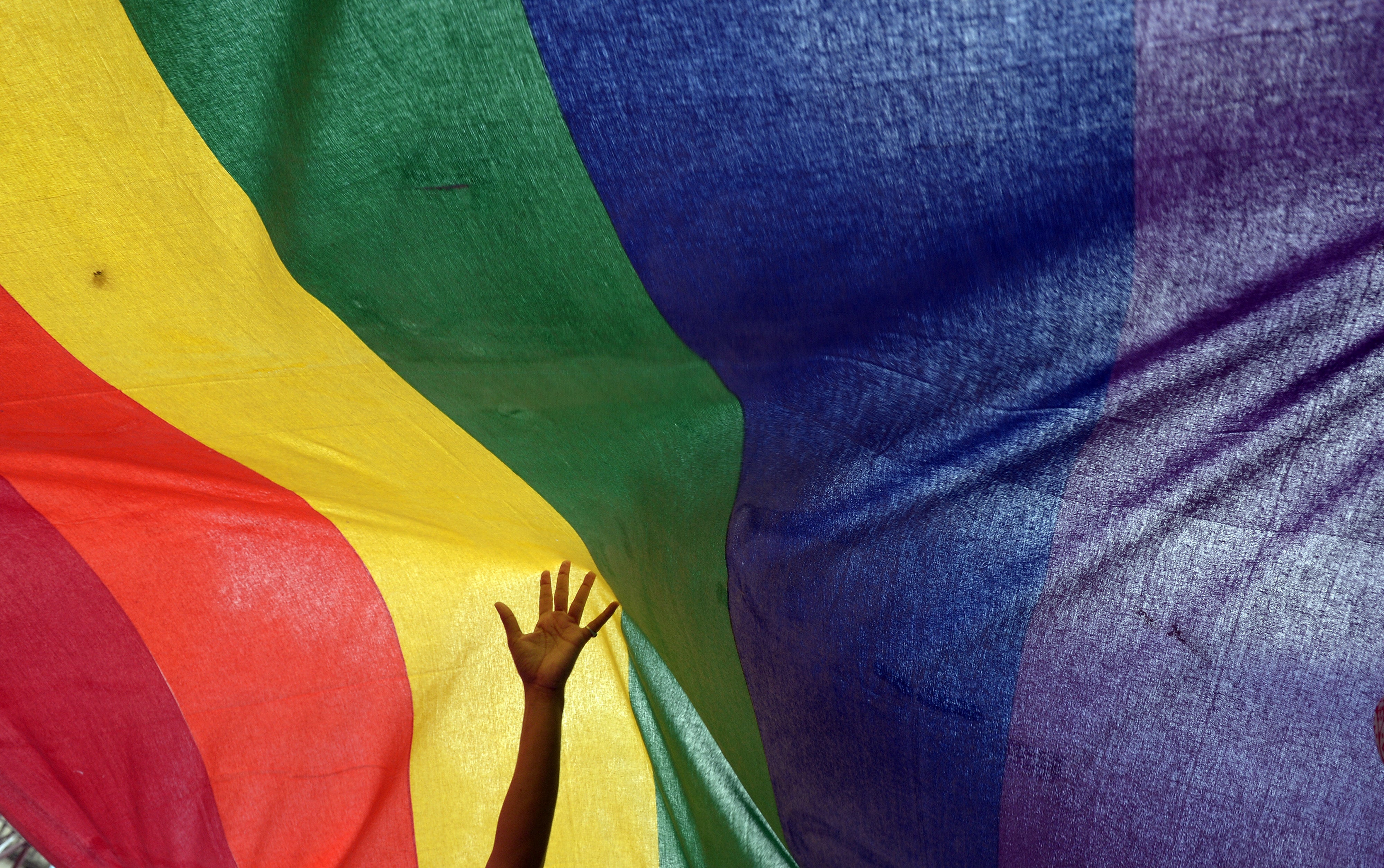Indian government opposes same sex marriage, saying family is ‘union of biological man and woman’
Same-sex partners were not comparable with the Indian family unit, the court was told

Your support helps us to tell the story
From reproductive rights to climate change to Big Tech, The Independent is on the ground when the story is developing. Whether it's investigating the financials of Elon Musk's pro-Trump PAC or producing our latest documentary, 'The A Word', which shines a light on the American women fighting for reproductive rights, we know how important it is to parse out the facts from the messaging.
At such a critical moment in US history, we need reporters on the ground. Your donation allows us to keep sending journalists to speak to both sides of the story.
The Independent is trusted by Americans across the entire political spectrum. And unlike many other quality news outlets, we choose not to lock Americans out of our reporting and analysis with paywalls. We believe quality journalism should be available to everyone, paid for by those who can afford it.
Your support makes all the difference.The Indian government has told the country’s High Court that despite the decriminalization of same-sex relationships, homosexual couples “cannot claim a fundamental right for same-sex marriage”.
Living together as same-sex partners is not comparable with the Indian family unit concept of a husband, wife, and children, it claimed in papers filed on behalf of Narendra Modi’s administration.
“Family issues are far beyond mere recognition and registration of marriage between persons belonging to the same gender,” the government told the Delhi High Court which is currently hearing a series of petitions seeking legalization of same-sex marriage under the Hindu Marriage Act (HMA), Special Marriage Act (SMA)and Foreign Marriage Act (FMA).
The HMA is a law that codifies the law relating to marriage among Hindus. The SMA and FMA are provisions under the law that allow Indian nationals to register their marriage, whether they wed in the country or abroad respectively.
“Living together as partners and having sexual relationship by same sex individual is not comparable with Indian family unit concept of a husband, wife & children which necessarily presuppose a biological man as ‘husband’, a biological woman as ‘wife’ and children born out of union,” the government said.
The plea seeking registration of marriage under SMA was filed by Kavita Arora and Ankita Khanna, two mental health practitioners who moved to Delhi High Court after a government official refused to solemnize their marriage because of their sexual orientation.
The second plea was filed by a US-based couple, Vaibhav Jain and Parag Mehta. Mr Jain and Mr Mehta moved the High Court seeking direction for registration of marriage under the FMA after the Indian consulate at New York refused their application for registration of their marriage previously solemnized before a circuit judge in Washington DC.
Both couples, in an interview with The Independent, said that the decision to go to court was influenced by the situation brought on by the coronavirus pandemic. Ms Arora and Ms Khanna in the plea said they realized that “life is unpredictable and transient” and that “they want to protect each other’s financial and emotional security”.
“The need to nominate one’s partner in health and life insurance, to protect the right to inheritance and to ensure access to the shared household, financial and other resources has never been more pressing than during the pandemic,” they argue in their petition.
The petition challenging the HMA was filed by equal rights activists Abhijit Iyer Mitra, Gopi Shankar M, Giti Thandani and G Oorvasi who contended that HMA does not distinguish between heterosexual and homosexual marriage for it clearly states that “marriage can indeed be solemnized between ‘any two Hindus.’”
Opposing the petitions, the Centre informed the court that registration of marriage of homosexual couples would also violate the existing personal as well as codified law provisions.
The government submitted that the legal recognition of same-sex marriage is essentially a question that ought to be decided by the legislature and cannot be a matter of judicial adjudication.
“ It is submitted that the Parliament has designed and framed the marriage laws in the country... to recognise only the union of a man and a woman to be capable of religious sanction, and thereby claim legal and statutory sanction. It is submitted that any interference with the same would cause a complete havoc with the delicate balance of personal laws in the country,” the Centre said in the affidavit.



Join our commenting forum
Join thought-provoking conversations, follow other Independent readers and see their replies
Comments